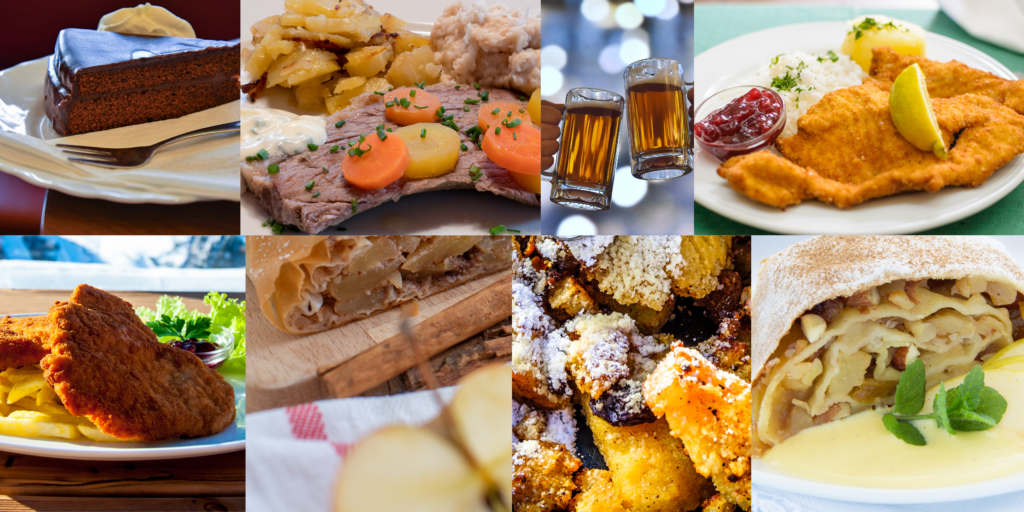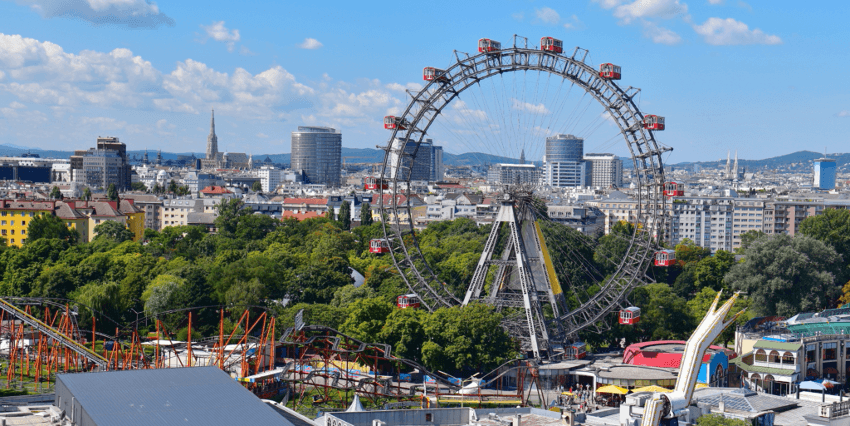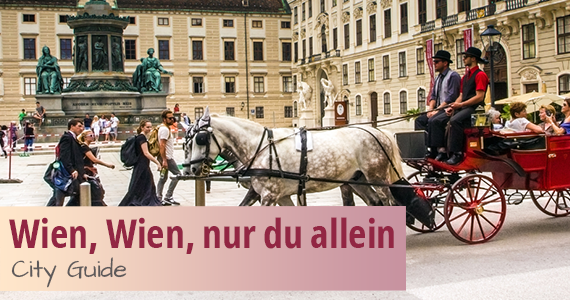Whether you’ve lived here for years or have just started thinking about moving here, expats in Vienna love the city for many aspects. Read our City Guide for Expats in Vibrant Vienna and learn everything there is to know.
Facts about Vienna
Vienna is both the capital and an independent province of Austria. About 1.9 min. people live here, which means a good fifth of the total population of Austria.
Since Vienna already played an important role in international diplomacy at the Congress of Vienna, it is still an important meeting place of more than 30 international organizations, such as OPEC, the IAEA and the OSCE. The so-called Viennese Schmäh, i.e. Viennese charm, also characterizes the city and makes it something special, attracting about 7.5 million tourists every year. Classicism, art and clichés are attributes to reckon with when you move here.

Vienna’s cityscape is characterized by coffeehouses, historic buildings and many green spaces. Its artistic and intellectual heritage was shaped by residents such as Mozart, Beethoven and Sigmund Freud. Moreover, you cannot get past the most famous Viennese: Sissi, the well-known empress of Austria who lived in the 19th century, shapes the city and you continuously walk past buildings and places that are connected with her.
What are some highlights of Vienna?
Vienna has so much to offer in terms of culture, cuisine and modern city life that it is really difficult to make a selection that does justice to everything. However, we want to introduce you to the most important highlights:

- Of course, you have to see St. Stephen’s Cathedral. It is considered the landmark of Vienna, and is also called the national shrine.
- Schönbrunn Palace, built in its present form in the 18th century as a summer residence for Archduchess Maria Theresa, has been located in Vienna’s 13th district, Hietzing, since 1892.
- The Hofburg zu Wien was the residence of the Habsburgs in Vienna from the 13th century until 1918. Since the end of 1946 it has been the official residence of the Austrian Federal President. and houses most of the Austrian National Library as well as various museums and the Federal Monuments Office.
- The Vienna Prater is an extensive, about 6 km², largely public area in the 2nd district of Vienna.
- The Museums Quartier Wien (MQ) is one of the largest cultural areas in the world. A flair that matches the urban lifestyle of the visitors: Preserve the old, experience the new and enjoy it all together. On the edge of old Vienna, it combines culture, cafes and restaurants.
- The Leopold Museum is a unique treasure trove of Viennese Modernism, the Wiener Werkstätte and Expressionism.
What other places or activities should not be missed?
- Vienna’s Naschmarkt is not only the city’s largest market, but also the most exotic. Vendors offer a wide range of products from Indian curry to fresh pasta and live carp to sushi. Meanwhile, many of the classic market stalls have been transformed into small restaurants.
- Another Viennese tradition, although not quite cheap, is a ride on a Fiaker. Fiaker are historical horse-drawn carriages that drive the guest through the city and give you a tour of the sights.

There are, of course, numerous other highlights that make Vienna unique. Usually it is best to get get a feel for the city yourself, because after all, everyone sets their own priorities when it comes to deciding which city to live in. However we are confident that expats in Vienna will definitely enjoy this cosmopolitan, attractive city that has a lot to offer.
What is living in Vienna like?
The average rent in Vienna ranges from 14.25 € to 21.23 € per square meter.
The 17th district is the most popular residential district for the Viennese. The burgeoning area with many new construction projects is in demand. The 15th district has become an absolute trendy neighbourhood in recent years with new pubs, good public transport connections and many new apartments.
Especially for young people, Rudolfsheim-Fünfhaus is exciting. In the Sonnwendviertel, you can find start-up companies right next to modern apartment buildings. Expats in Vienna also like Floridsdorf, a large and diverse district particularly popular with families: it is both urban and rural.

How is the public transport system in Vienna?
Vienna’s subway network consists of five lines, while the S-Bahn has ten lines available for transportation. In addition, there are about a hundred bus lines that make daily life easier. Vienna Airport is a hub for flights, especially to Eastern Europe and the Middle East. From there, 77 airlines fly to 68 countries worldwide with 217 destinations. So in terms of connectivity, Vienna is well equipped, so you don’t have to worry about not being able to reach a destination.
What are some traditional dishes in Vienna?
What makes Vienna so special? Viennese cuisine, of course, unsurpassed in its diversity and with its influences from the former countries of the Habsburg monarchy. Traditional dishes are manyfold from Wiener Schnitzel to goulash, along with a really good – let’s call it that – “everyday gastronomy”: the Viennese Beisl.
A Beisl is a typical Viennese eatery. Down-to-earth, cozy and homey, it holds its own in a booming restaurant scene and offers genuine Viennese cuisine. The term Beisl probably comes from Yiddish – from “bajiss” (house). The classic Viennese Beisl has a spacious bar, where wine is chilled and beer is tapped. The Beisl is definitely worth a visit if you want to try the following dishes:
- Wiener Schnitzel
- Sachertorte
- Viennese apple strudel
- Kaiserschmarrn
- Pancakes
- beef soups
- Classic Tafelspitz
- Butterschnitzel
These are all dishes of traditional Viennese cuisine that you should definitely try.

Those who prefer international cuisine will of course also find what they are looking for in Vienna. Virtually every district of the city has both a Beisl and restaurants with international cuisine. Ask the locals for tips!

Vienna is a city with world flair. Expats in Vienna will not only find good professional conditions, but also a metropolis that combines modernity with history and tradition. The only thing you have to get used to is the Viennese “Schmäh”! Have fun exploring!
Looking for an English-speaking service in Vienna? Browse through our categories or contact us through our Concierge Services! We are here to help you simplify your life as an expat in Vienna.

